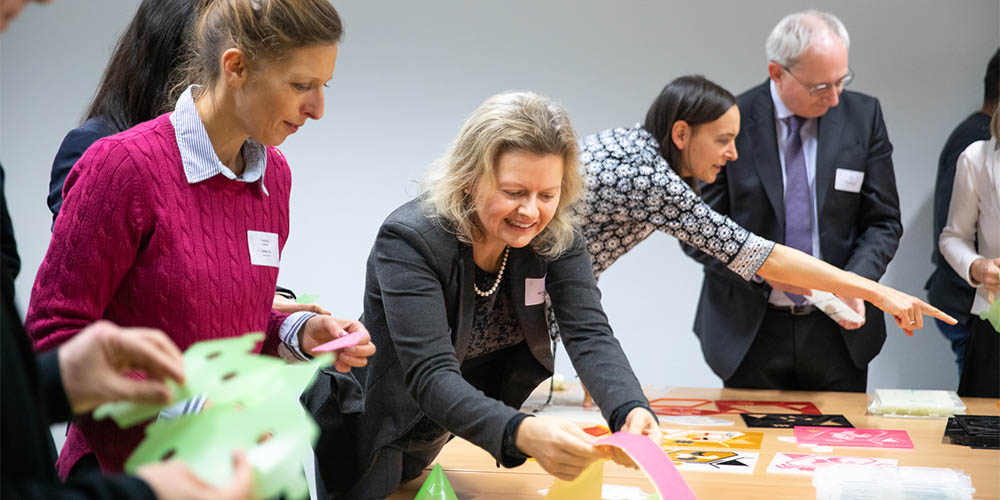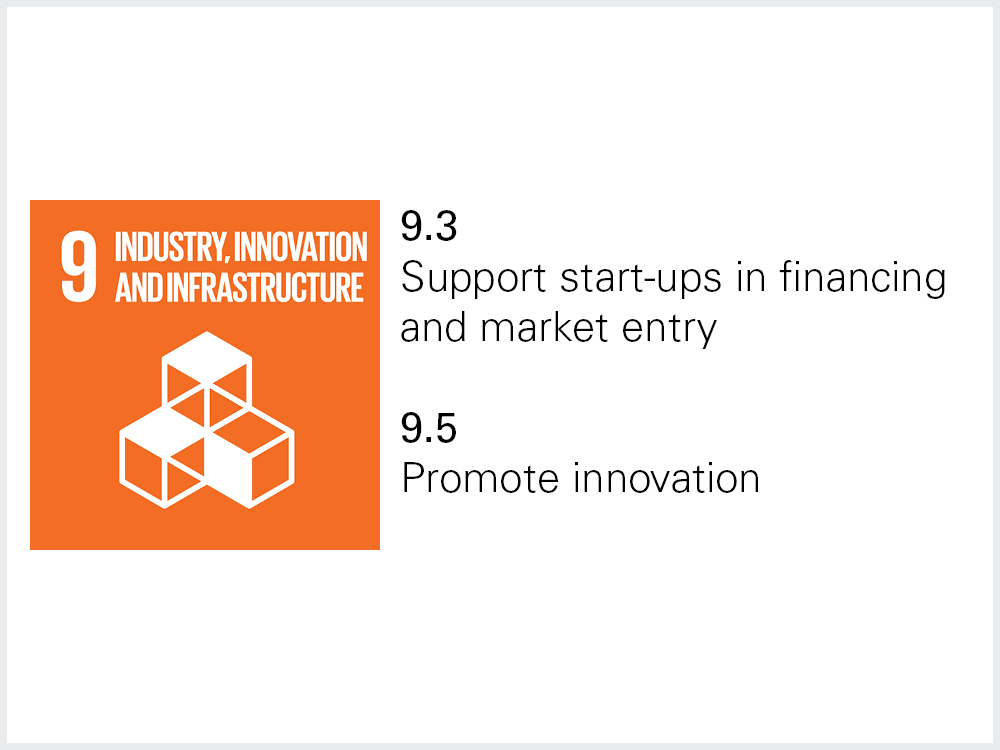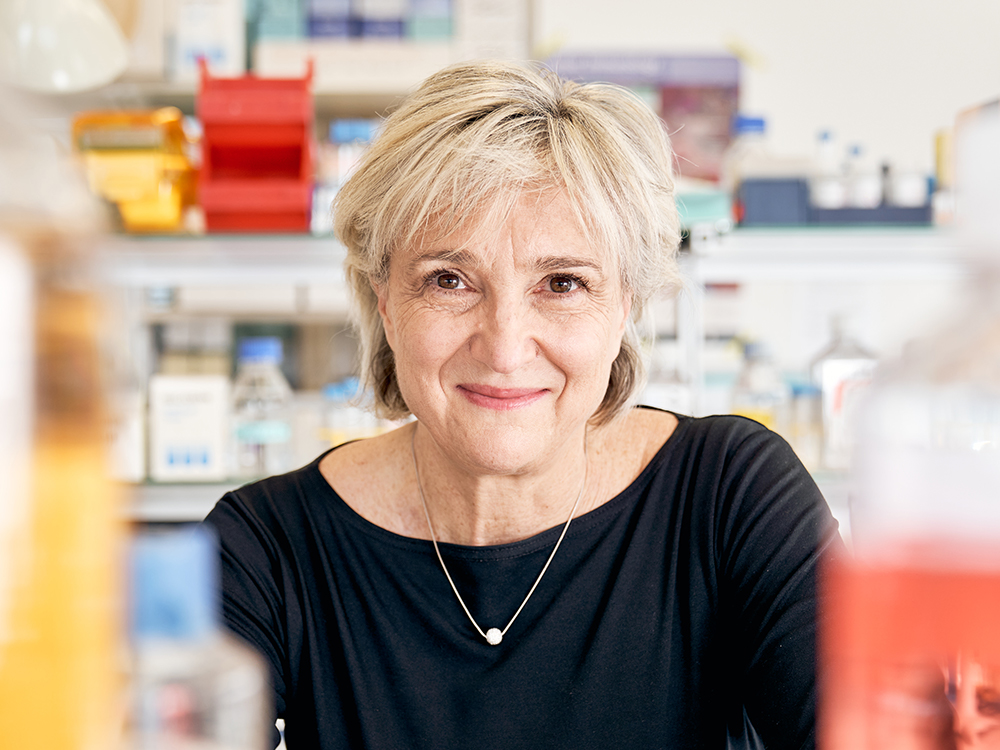Economic impact & innovation

With the Innovation Initiative, the university is systematically seeking to improve the transfer of knowledge and technology to wider society. A sweeping expansion of investment in the start-ups supported by the initiative, as well as numerous new start-ups founded over the past two years, highlight the economic significance of these activities.
Founding start-ups is an important driver of the regional economy, since the appropriate investment can make knowledge-based innovations a reality. The University of Basel plays a central role by facilitating transfer and training founders in the required expertise, and helping them network in the community.
Successful start-up community
Dr Lucia Mori is the co-founder and Chief Technology Officer of Matterhorn Biosciences. Lucia can now clinically advance her trailblazing research into cell-based cancer therapies developed at the Department of Biomedicine with Matterhorn Biosciences. The MR1T cells she discovered have the potential to fight all types of cancer. Matterhorn Biosciences, founded in May 2019, is the recipient of the largest Series A funding round for a start-up at the University of Basel so far, with CHF 30 million raised in summer 2020.
The range of financial support established and developed in recent years substantially improved the quality and quantity of the university's start-ups in 2019/2020. The quantity is reflected in the larger number of new start-ups and the quality in the growing private investment in the university's start-ups.
The Propelling Grant is a highly competitive funding instrument that seeks to provide financial support for high risk/high reward scientific discoveries at the University of Basel. The grant is associated with funding of up to CHF 50,000 over a period of up to six months, as well as with skill building and support from the Innovation Office.

The heart of the Innovation Office's work is always the people who strive to connect and implement research findings and entrepreneurial ideas innovatively and creatively. Through the Propelling Grants, the university is further strengthening their expertise and supports them financially.
Christian Elias Schneider, Head Innovation & Entrepreneurship
The start-up community in Basel has become larger and better connected: in 2019, the Entrepreneurs Club swelled to 775 people. Due to the pandemic, digital and individual offers dominated in 2020, which reduced the number of people reached by the Club to 215.
The number of people participating in start-up projects (start-ups in the planning stage) and already founded start-ups similarly rose sharply over the previous two years, as the graphic below illustrates.1
Innovation and technology transfer key figures 2019/2020
Propelling Grants
0
2
Start-up foundations
9
10
Investment in university start-ups
CHF 62.0 m
CHF 74.4 m
Invention disclosures
41
50
Priority patent applications
22
25
Licenses/options
14
22
New licensed products introduced to the market
0
1
Workshops with industry partners
63
37
New collaborative projects with industry
1
3
Technology transfer can be achieved by foundation of a start-up company or by collaboration with partner companies in industry. Inquiries from private industry about complex issues such as the «future of health» have risen in the last two years. Interest in intensive knowledge sharing with the research community about new, interdisciplinary technologies has also grown. The Innovation Office organizes workshops and connects researchers with industry to address this, leading to three new projects with companies in 2019/2020 relating to «regenerative mobility», «future of health» and «health data platforms & ecosystems». Economic profitability and academic freedom are ensured through close monitoring by the Innovation Office.
Goals & actions
Increase the impact of Innovation & Corporate Relations
Greater support of diversity (in particular women and minorities) in the foundation of start-ups through workshops, events and community building; at least two events per year
Support and guidance of at least six start-up foundations per year
Innovation & Corporate Relations
Innovation & Corporate Relations
Increase expertise and skills in innovation and entrepreneurship
Continue to develop range of courses through topics such as Leadership & Culture and Communication of Sustainability Issues
Innovation & Corporate Relations
Downloads
[1] Due to differing data collection methods, the graphic from the 2019/2020 Sustainability Report is not directly comparable to the graphic from the 2017/2018 Sustainability Report. No data was collected in 2019.




